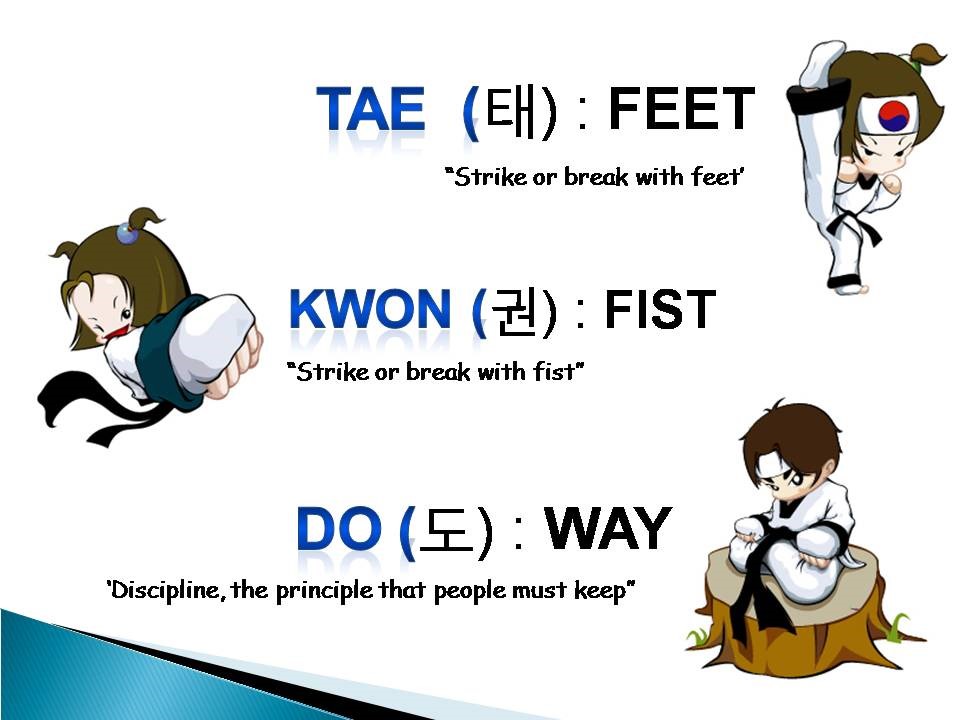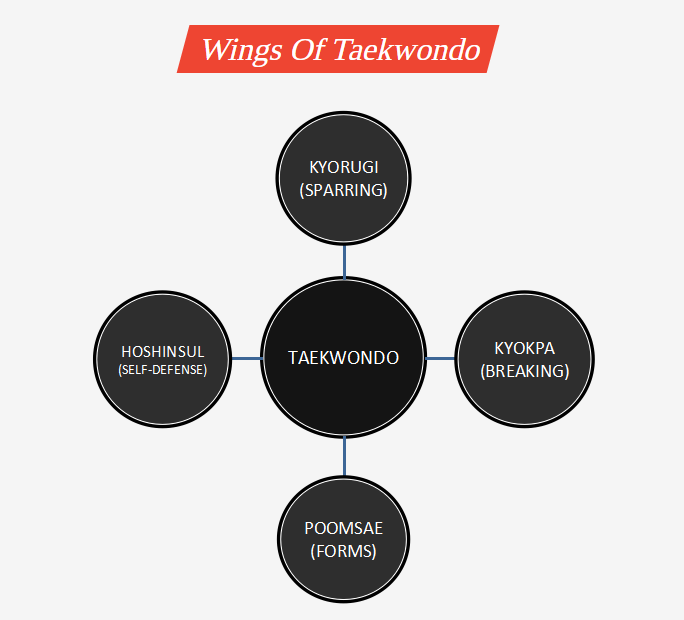ABOUT TAEKWONDO
What is Taekwondo??
Taekwondo is one of the most systematic and scientific Korean Traditional Martial Art. It is a discipline that shows ways of enhancing our spirit and life through training our body and mind. Taekwondo is not only a combat sport, but is also a way of life for enthusiasts around the globe. Today, it has become a global sport that has gained an international reputation, and stands among the official games in the Olympics. Taekwondo was included as a demonstration sport in the Seoul 1988 & Barcelona 1992 Olympic Games. Then Taekwondo made its Olympic debut as an official sport at Sydney 2000 Olympic Games. Taekwondo as an Olympic Sport is practiced by 208 countries worldwide and is a major sporting event in Olympics, Asian Games, European Games, Pan American Games, Universiade.
Let’s take a closer look at the meaning of the word “Tae” “Kwon” “Do.”
Taekwondo means “the art of kicking and punching”. It beautifully blends combat, entertainment, exercise, philosophy, sport and self-defense techniques.


Belt Grading System
White belt (10th kup) signifies innocence and purity as the student has no previous knowledge of Taekwondo.
Yellow belt (8th kup) signifies gold an element of the earth. Gold in turn represent truth and the foundation of Taekwondo
Green Belt (6th kup) signifies growth as Taekwondo skills begin to grow and develop.
Blue Belt (4th kup) signifies heaven as the student mature and progresses in training.
Red Belt (2nd kup) signifies the sun, the center of our solar system. Red also signifies danger cautioning the student to exercise control and warning the opponent to stay away.
Black Belt (1st Dan) is the opposite of white signifying maturity and proficiency in Taekwondo. It also indicates the wearer's invulnerability to darkness and fear. Black represents the universe.
TENETS OF TAEKWONDO
Courtesy (Ye Ui):
Taekwondo students should attempt to be polite to one another and to respect others. Students should address instructors as Sir and to bow to the instructors before and after classes. Turning up early or on time for classes is also an aspect of courtesy.
Integrity (Yom Chi):
One who has integrity is able to define what is right or wrong and have the conscience, if wrong, to feel guilt. Taekwondo students should strive to be honest and to live by moral principles.
Perseverance (In Nae):
Self-Control (Guk Gi):
Without self-control, a Taekwondo student is just like any fighter in the street. Loss of self-control is disastrous both in sparring and personal affairs. “The term of stronger is the person who wins over oneself rather than someone else”, Lao Tzu.


